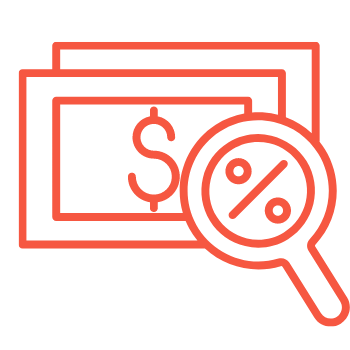Takeaways:
- Beware of new cash advance schemes!
- Respected platforms are entering the small business financing business – make sure your clients know how those products will affect their cash flow.

DoorDash, the company known for its app based food delivery services is offering a new service to restaurants – merchant cash advances (MCAs). DoorDash says their MCAs are not “loans” because they do not have an interest rate, but a fixed fee that is collected when the capital advance is collected.
Mindbody, a software used by many fitness gyms and yoga studios, also has an MCA for short term cash flow needs. Mindbody bases the decisions on who gets an MCA based on the amount of sales a particular gym processes through their online software.
A merchant cash advance technically is not a loan, but an advance of cash based upon the credit card sales deposited in a business’ merchant account. MCAs are a type of small business financing and CAMEO has worked hard with its partners to ensure that MCAs disclose their terms, which are often predatory.
DoorDash provides the business with a merchant cash advance against future sales of the orders placed through the DoorDash app.To pay the capital advance DoorDash takes a percentage of the businesses daily sales from its bank account and applies it to their repayment.
One merchant cash advance fee is the factor rate. This is the primary way an issuer determines the cost of your cash advance. When using factor rate to calculate the total repayment amount, your lender multiplies your cash advance by the rate, which typically ranges from 1.1 to 1.5.
For example, if you received a $10,000 cash advance with a 1.4 factor rate as the only thing determining your borrowing cost, your total repayment amount would be $14,000, making your fee $4,000 — that’s essentially a 40% fee on your cash advance. Keep in mind that the factor rate is the fee associated with taking out the cash advance, not how you pay the cash advance back. And often additional fees are hidden in small print.
The amount DoorDash or other ‘finance provider takes through daily or weekly payments as a percentage of a business;s bank account is called the holdback rate, which can range from 5% to 20%.
For example, if one of your clients receives an MCA with a repayment amount of $65,000 and a 10% holdback rate, repayment would begin after the business is approved for the MCA and then continue until 10% of their daily credit card sales totaled $65,000. If the daily debit and credit card sales average is $5,000, and assuming your client is open for business every day, it could take more than four months to pay back the $65,000 advance.
The big question for your clients is can your client’s business sustain more than $16,000 / month in cash outflow to pay off the MCA?
This Forbes article has more information on merchant cash advances.
Recently the Federal Trade Commission has been cracking down on MCAlenders alleging some engage in aggressive, and potentially misleading, marketing practices and use potentially abusive collection tactics. RAM Capital Funding, LLC and its owner Tzvi Reich, will be permanently banned from the merchant cash advance and debt collection industries, and required to pay $675,000 to settle Federal Trade Commission charges that they used deceptive and illegal means to seize assets from small businesses, non-profits, and religious organizations.
The bottom line is to be careful when accepting merchant cash advances, because while they might sound like easy money and a good deal they don’t always pencil out on the bottom line. Something else to be careful about are “Buy Now, Pay Later” products. Those payments will start showing up on credit reports starting this year. Missing these payments could potentially lower a consumer’s credit score, just like missing a credit card payment, so be careful and read the fine print when considering using this payment method.
Written by Addison Peterson
